基于PLC脉冲计数的电梯控制系统设计(附CAD图)
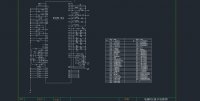
基于PLC脉冲计数的电梯控制系统设计(附CAD图)(任务书,开题报告,外文翻译,实习报告,论文说明书22000字,CAD图5张)
摘要
随着我国经济的高速发展高层建筑越来越多,而电梯作为垂直上下的交通工具,它的使用日益广泛,与人们的日常生活密不可分。乘客对它舒适性的要求也越来越高。目前,电梯主要采用PLC和变频器的方法来控制。以往是利用硬件的方法,在井道内装设若干个上下换速隔磁板配合每层站装有的楼层感应器来实现,这种方法不仅费工费料,而且每个器件的安装距离不可避免地存在一定的误差,从而影响电梯的运行效率。
本设计为基于PLC脉冲计数对升降电梯的各项操作进行控制,先对电梯的发展历史和现状进行回顾。然后对PLC的电梯控制系统进行分析。再对PLC脉冲计数系统进行设计。最后,对设计的系统进行分析和展望。
Abstract
With the develop at top speed of the economy of our country, more and more high-rise buildings appear, and the elevators as the vehicle to transport vertically up and down become more and more widely use, that closely connected people’s daily life. People demand it to be more and more comfortable. Now, it is mainly controlled by the PLC and frequency converter. In the past, the hardware was used to make the control make sense by installing several magnetic isolation plate in speed up and down at the hatchway. But the method above was not only waste the material and manpower but also bring some unavoidable errors of installed distance of each device, which affect the running efficiency of the elevator. [来源:http://www.doc163.com]
This design is base on the pulse counting of PLC to control the operations of the elevator. First of all,we will review the history of development and current situation of the elevator. Then we will analyse the control of the elevator by PLC. And we will design the pulse counting system of PLC. Finally,we will analyse and look forward to the system we designed.
[版权所有:http://DOC163.com]
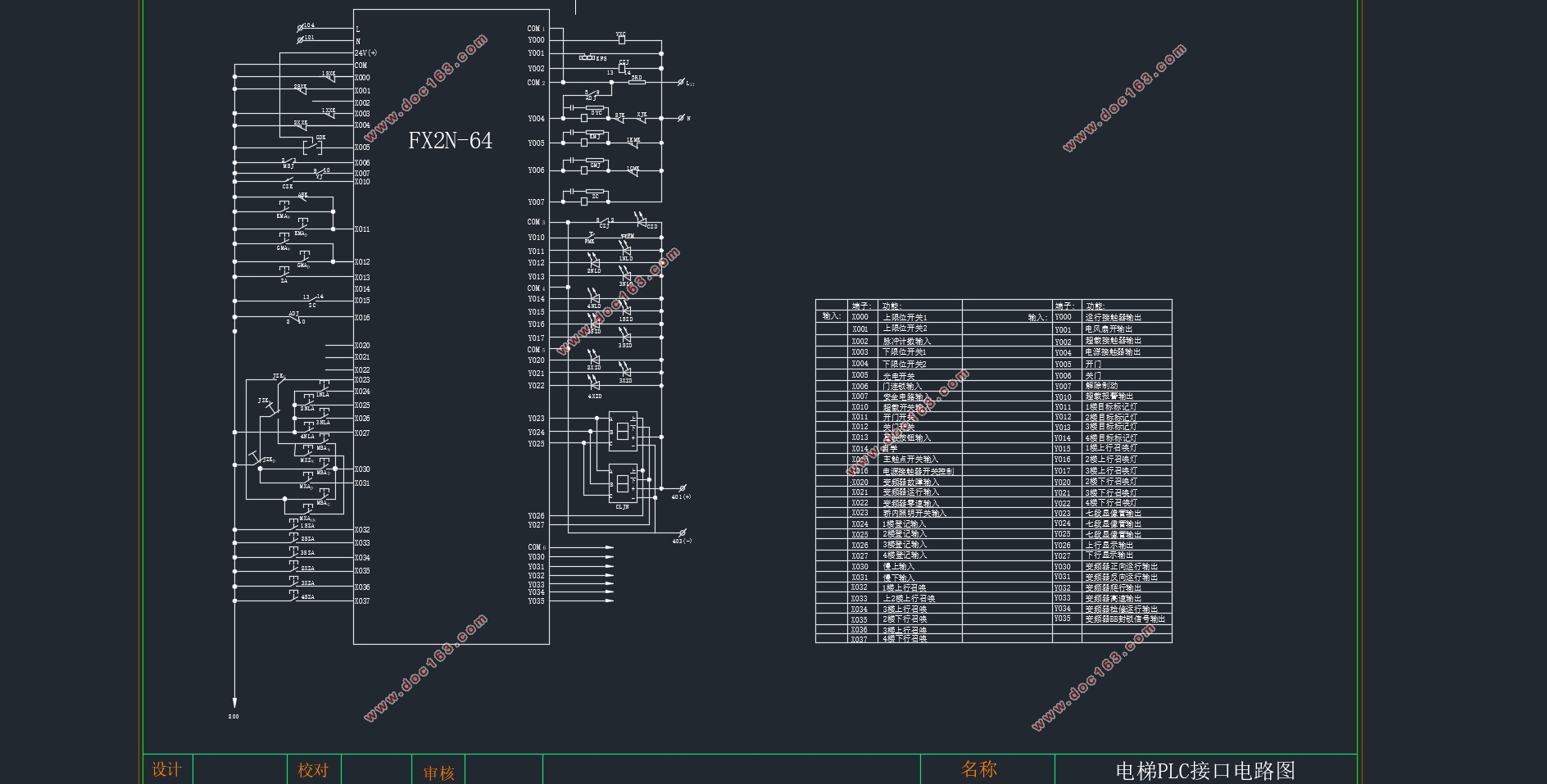
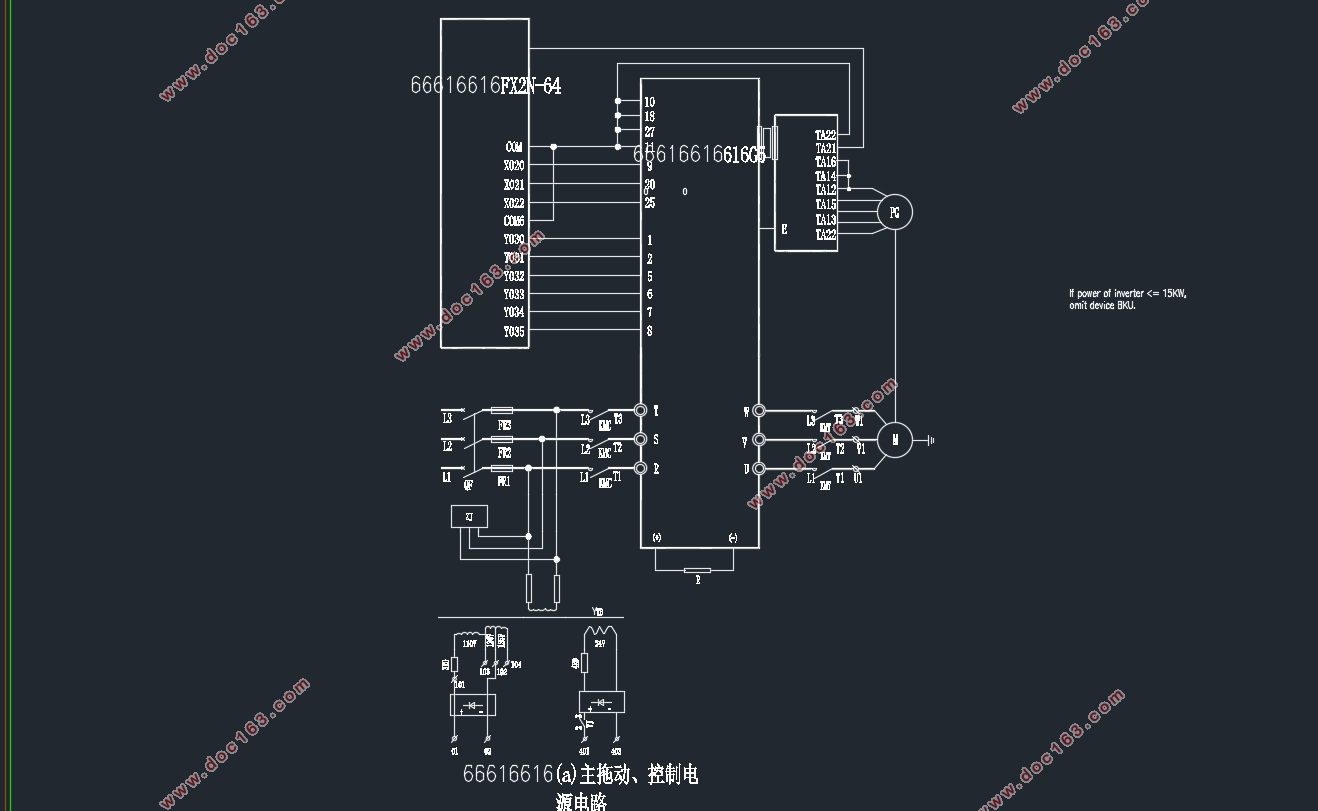
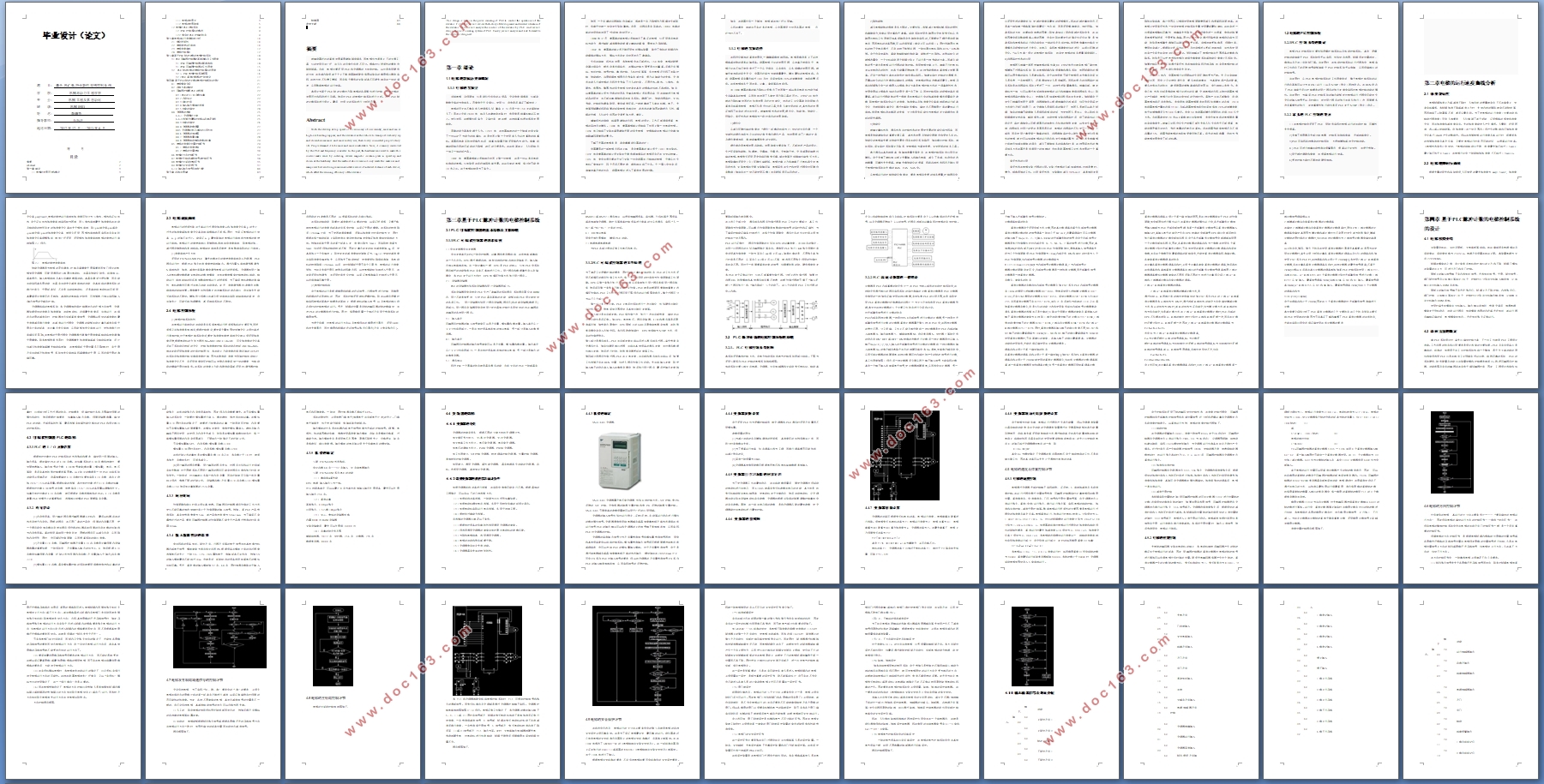
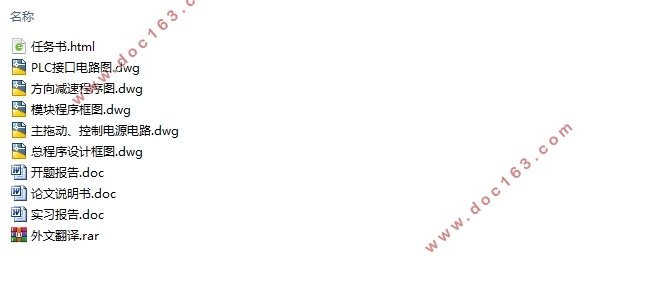
目录
摘要 2
Abstract 2 [来源:http://Doc163.com]
第一章 绪论 3
1.1电梯的发展历史和概况 3
1.1.1电梯的发展史 3
1.1.2电梯的发展趋势 5
1.2电梯的PLC控制系统 9
1.2.1PLC控制系统的概述 9
1.2.2常见的PLC控制的特点 9
第二章电梯的运行速度曲线分析 10
2.1 乘坐舒适性 10
2.2 电梯理想运行曲线 10
2.3 电梯速度曲线 12
2.4 电梯控制系统 12
第三章基于PLC脉冲计数的电梯控制系统 14
3.1 PLC可编程控制器的基本结构及工作原理 14
3.1.1PLC可编程控制器的基本结构 14
3.1.2PLC可编程控制器的工作原理 15
3.2 PLC脉冲计数的电梯控制系统的原理 16
3.2.1.PLC电梯控制系统框图 16
3.2.2 PLC高速计数器的一般理论 17
第四章 基于PLC脉冲计数的电梯控制系统的设计 21
4.1 电梯模型介绍 21
4.2 总体方案的确定 21
4.3 可编程控制器PLC的选择 22
4.3.1 PLC的I/O点数估算 22
4.3.2 内存估计 22
4.3.3 响应时间 23
4.3.4 输入输出模块的选择 23
4.3.5 机型的确定 24
4.4 变频器的选择 25
4.4.1 变频器的分类 25
4.4.2选择变频器的规格以及满足条件 25
4.4.3 机型的确定 26
4.4.4 变频器参数设置 27
4.4.5变频器自学习功能的应用方法 27
4.4.6 变频器的接线图 27
4.4.7 变频器容量计算 28
4.4.8 变频器制动电阻参数的计算 29
4.5 电梯的速度及位置控制环节 29
4.5.1 电梯的速度控制 29
4.5.2 电梯的位置控制 30
4.6电梯的方向控制环节 32 [来源:http://Doc163.com]
4.7电梯发生制动减速信号的控制环节 34
4.8电梯的主驱动控制环节 35
4.9电梯的安全保护环节 37
4.10 输入输出信号及地址分配 40
第五章 总结与展望 43
结束语 43
参考文献 44
下一篇:PLC在VVVF电梯电气控制系统中的应用(附CAD电气原理图)
